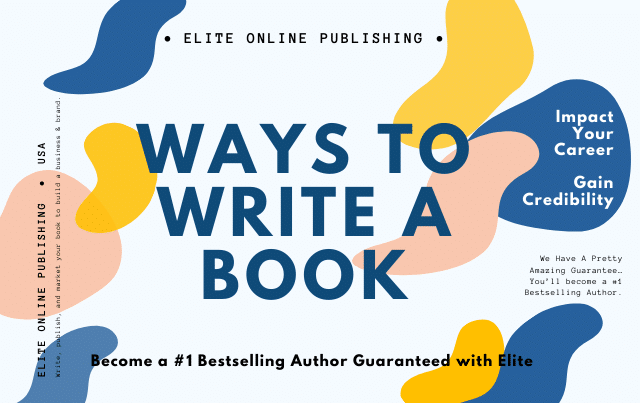Ways To Write A Book
For many people, writing a book has been a lifelong dream, yet one that’s always seemed just out of reach. It’s true, that roughly 80% of Americans have wanted to write and publish a book at some point — but fewer than 0.1% have actually done it. Whether you’re a CEO of a booming company, or just starting out in your niche industry, there are endless benefits to having a book. With that being said, every writer’s journey is unique, and we have a few pointers to get you going.
1. Find Your “Big Idea”
The one thing you absolutely need to write a book is, of course, an idea. You may already know what you want to write about, or you may be at a total loss. Either way, you can settle on a “big book idea” by asking yourself a few simple questions:
- What do I want to write about?
- What do I feel is important to write about?
- Who will want to read about this story/subject?
- Will I be able to carry out this idea effectively?
Also Read: How to Write A Book
2. Research Your Industry Niche
Once you’ve found your big idea, the next step is to research your niche/genre. Again, if you’re writing the sort of book you like to read, you already have a leg up! Reading books in your genre is by far the best way to learn how to write in that genre yourself.
NOTE: Find out what people are reading
You should also conduct market research on Amazon to determine the most popular books in your genre. If you want your book to succeed, you’ll have to contend with these bestsellers. Go to the Amazon Best Sellers page and find your genre in the left-hand sidebar of categories. Within one category, consider what you could add to the conversation.
3. Create an outline

You don’t have to structure it as a rollercoaster, but your outline should look something like this.
If you want to write a great book, you need to outline it first. This is especially important if it’s your first book, since you need a solid blueprint to rely on when you get stuck! (Because believe us, you will get stuck.
Also Read: What Should Go Inside Your Book
NOTE: Make sure your book is all killer, no filler
Of course, that’s easier said than done, especially once you’ve already started writing. When you get to a patchily outlined section, it’s tempting to keep writing and fill out the page with literary gymnastics. But that’s exactly what this content is: filler. And if you have too much of it, readers will become frustrated and may view it as pretentious.
4. Set word count goals
Let’s move on to practical ways that you can improve your writing habits. Word count goals play a huge part in creating an effective writing process, especially if you’re trying to finish your book in a certain amount of time.
You should create word count goals for both your individual sessions and per week — or per month if that’s how you prefer to think about your writing output. For relatively novice writers, we’d recommend the following word count goals:
500-750 words per day
1,500-2,500 words per week
6,000-10,000 words per month
These goals are based on a pattern of 3-4 sessions per week, which is reasonable for a beginner, but still enough to make commendable progress. Even if you only follow our minimum recommendations — 500 words per session at 3 sessions per week — you can still easily finish your book in less than a year!
5. Set Up A Productive Workspace
Another major component of how to write a book is where you write, hence why it gets a separate section. What does a good writing space look like?
- Quiet (noise-canceling headphones can be very helpful)
- Clean (no clutter, especially if you do chores to procrastinate)
- Non-distracting (nothing too fun around to tempt you away from writing; turn off your phone so other people won’t bother you)
- Your own (cultivate a nice atmosphere in your home office with posters and plants, or simply take the same seat at your local café every time — truly carve out a “dedicated writing space”)
6. Take Setbacks as They Come
- Revisit your outline. This will jog your memory as to planned story elements you’ve forgotten — which may help you find the missing piece.
- Try writing exercises. It’s possible you just need to get the words flowing, and then you can jump get right back into your book.
- Share your experience with friends. This is another great role for your writing buddy to fill, but you can easily talk about writer’s block with your non-writing friends, too. If you’re struggling, it always helps to vent and bounce ideas off other people.
- Take a short break to do something else. Yes, sometimes you need to step away from the keyboard and clear your head. But don’t take more than a day or so, or else you’ll lose momentum and motivation.
Lastly, Get Help From Publishing Professionals
Publishing is another rigorous process, of course. But if you’ve come this far to find out how to write a book, you can pretty much do anything! Invest in stellar cover design, study up on marketing, or start working with a professional, experienced team that can lead the way on your self-publishing journey. See how Elite Online Publishing may be the perfect fit for you, as we GUARANTEE #1 Bestselling status to 100% of our authors.





0 Comments